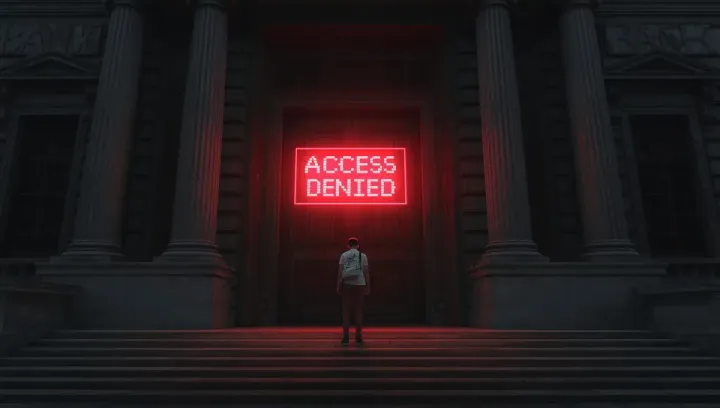
"Fair Access" or Financial Control? Unpacking the New Debanking Executive Order
On the surface, the new executive order aimed at what it calls “politicized or unlawful debanking” sounds like a win for freedom. The order, issued in August 2025, purports to protect individuals and businesses from being denied financial services based on their political or religious beliefs. Who could argue with that?
Well, I can. When I see the government rushing to “solve” a problem that it helped create, my skepticism meter goes off the charts. This isn’t about protecting your rights; it’s about consolidating power.
The Government as Both Arsonist and Firefighter
The order itself admits that financial institutions have sometimes engaged in these practices at the prompting of “federal banking regulators.” For years, under the guise of managing “reputation risk,” regulators have pressured banks to cut ties with entire industries and groups deemed undesirable. Now, the same government that created this climate of fear is swooping in to save the day. It’s a classic case of the arsonist showing up with a fire hose and expecting a medal.
The order directs regulators to remove “reputation risk” from their guidance. While that seems like a positive step, it conveniently ignores the underlying issue: the immense, often informal, pressure that the government can exert on financial institutions.
A Tool for Political Retribution?
The timing and framing of this order are highly suspect. It follows public statements by the president accusing banks of discriminating against him personally. This makes the entire initiative look less like a principled stand for free speech and more like a tool for political retribution. The order could easily be used to punish banks that are not seen as friendly to the current administration, all under the noble-sounding banner of “fair access.”
Furthermore, the order directs the Small Business Administration to require participating banks to identify and “reinstate” clients who were previously debanked. This is a massive overreach. It forces private companies to do business with individuals or groups they may have dropped for legitimate risk-based reasons, simply because those reasons are now deemed “political.”
The Real Threat to Financial Freedom
While politicized debanking is a real and growing problem, this executive order is a flawed and dangerous solution. It replaces the opaque pressure of “reputation risk” with the explicit threat of government enforcement based on a vague and politically charged definition of “politicized” activity.
True financial freedom doesn’t come from giving the government more power to dictate who banks should serve. It comes from a system where financial institutions are free to make their own risk assessments without fear of political retribution, and where customers have a wide range of choices, including decentralized alternatives that are resistant to censorship.
This order is not a step towards freedom. It’s a step towards a system where the government has even more control over the financial levers of power. And that should worry everyone, regardless of their political beliefs.
Source: Analysis based on the report from McGuireWoods, August 8, 2025


